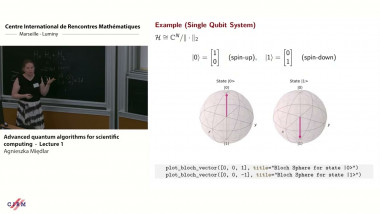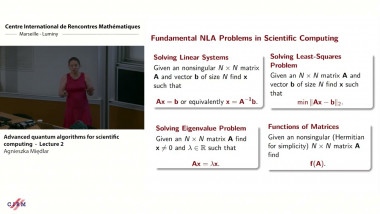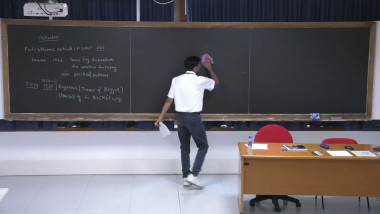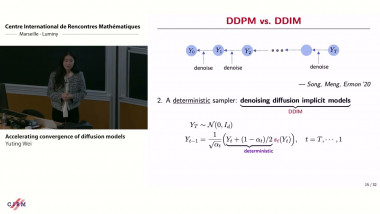Apparaît dans la collection : 2019 - T1 - WS1 - Variational methods and optimization in imaging
In the last decades, infimal-convolution-type techniques developed to a viable set of tools in variational imaging. Nowadays, the infimal convolution has successfully been used to construct various regularization functionals for inverse problems in imaging. It is commonly interpreted as a way to realize two or more competing variational image models by a single functional. Many convex models base on this approach, such as, for instance, regularization on multiple orders of smoothness via total variation (TV) or total generalized variation (TGV), energies for cartoon/texture decomposition as well as modelling of different time scales for image sequences. In the talk, we consider a general framework for the infimal convolution of regularization functionals with a focus on the one-homogeneous case. We show that the latter class of functionals can arbitrarily be combined by infimal convolution in order to regularize a general class of ill-posed inverse problems, provided that their kernels are finite-dimensional and that each functional is coercive up to the kernel, leading to a well-posed decomposition of the image to recover. We then discuss recently-introduced instances where these conditions are met and infimal convolution has been successfully applied: an oscillatory version of the second-order total generalized variation ($TGV^osci$) as well as anisotropic total (generalized) variation. In particular, imaging applications are shown where the use of infimal-convolution-type regularization is beneficial, such as applications in magnetic resonance imaging (MRI), electron tomography, and photoacoustic imaging. Finally, we discuss how the constructed regularization functionals can be used to derive dedicated efficient preconditioners for numerical optimization algorithms.
















